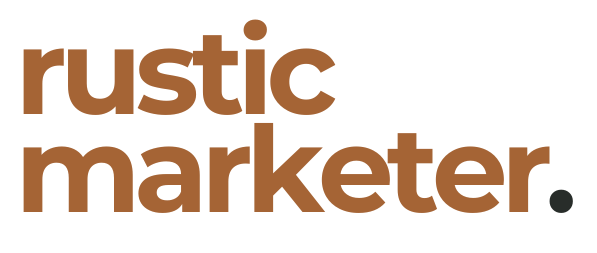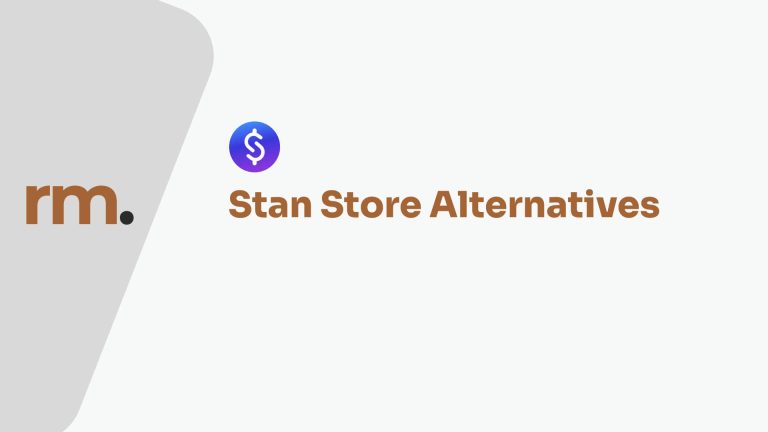No-code chatbot builders have become increasingly popular in recent years, allowing businesses to create chatbots without the need for coding skills. Chatbots are designed to simulate human conversations and can be used for a variety of purposes, including customer service and marketing. With the rise of artificial intelligence and machine learning, chatbots are becoming more sophisticated and capable of handling complex tasks.
With so many options available, it can be challenging to determine which no-code chatbot builder is the best fit for a business’s needs.
In this article, we will review the top no-code chatbot builders for 2023 and provide tips and best practices for implementing chatbots. We will also discuss the future of no-code chatbot builders and their potential impact on businesses. By the end of this article, you will have a better understanding of the benefits of no-code chatbot builders and how to select the best option for your business needs.
Key Takeaways
- No-code chatbot builders are a popular way for businesses to create chatbots without coding skills.
- When choosing a no-code chatbot builder, factors to consider include ease of use, integration with other platforms, and customization options.
- The future of no-code chatbot builders is promising, with the potential to revolutionize customer service and marketing.
4 best no-code chatbot builders
| Name | Best For | Pricing | Main Features |
|---|---|---|---|
| Tidio | Multi-channel integrations | Free limited plan, $50/month for Chatbots | User-friendly, templates, JavaScript API, drag-and-drop editor, Zapier integration |
| Chatfuel | Easy setup for Facebook Messenger and Instagram | Free limited version available | Quick setup, pre-made templates, keyword automated responses, drag-and-drop editor |
| ManyChat | Ease of use, affordability | Free limited plan, Pro version from $15/month | Multi-channel support, templates, intuitive drag-and-drop editor, affordable Pro plan |
| TARS | Large businesses, automation without human intervention | Free 14-day trial available. Plan prices available on request | Automates greeting prospects and generating leads, integration with landing pages, optimal information provision |
Understanding Chatbots
What is a Chatbot?
A chatbot is a computer program designed to simulate human conversation through text or voice interactions. Chatbots can be rule-based or AI-powered. Rule-based chatbots operate based on a predefined set of rules, while AI-powered chatbots use machine learning to improve their responses over time.
Chatbots are typically used to automate customer service interactions, but they can also be used for a variety of other applications, such as lead generation, sales, and marketing.
Types of Chatbots
There are several types of chatbots, each with its own unique features and capabilities. Some of the most common types of chatbots include:
- Scripted chatbots: These chatbots are programmed to follow a predefined script, and can only respond to specific questions or prompts.
- NLP-based chatbots: These chatbots use natural language processing (NLP) technology to understand and respond to human language.
- AI-powered chatbots: These chatbots use machine learning algorithms to improve their responses over time, and can learn from past interactions to provide more accurate and personalized responses.
Applications of Chatbots
Chatbots are used in a variety of industries, including healthcare, finance, and e-commerce. Here are some of the most common applications of chatbots:
- Customer service: Chatbots can be used to automate customer service interactions, such as answering frequently asked questions or providing support.
- Lead generation: Chatbots can be used to collect customer information and generate leads for sales teams.
- Sales and marketing: Chatbots can be used to qualify leads, provide product recommendations, and assist with purchases.
- Personal assistants: Chatbots can be used as personal assistants, helping users with tasks such as scheduling appointments and setting reminders.
In conclusion, chatbots have become an increasingly popular tool for businesses looking to automate customer interactions and streamline their operations. Whether you are looking to improve customer service, generate leads, or provide personalized recommendations, there is a chatbot solution that can help you achieve your goals.
Understanding No-Code Chatbot Builders
What are No-Code Chatbot Builders?
No-Code chatbot builders are software tools that allow businesses to create chatbots without requiring any coding or programming knowledge. These tools use a drag-and-drop interface, pre-built templates, and natural language processing (NLP) to help businesses create chatbots quickly and easily.
It’s a part of the growing trend of democratizing technology, which aims to make technology accessible to everyone, regardless of their technical expertise.
Why should you use no-code chatbot builders
No-Code Chatbot Builders offer several benefits to businesses.
- They empower businesses to create chatbots that can handle customer queries, provide support, and automate tasks, without the need for a dedicated IT team or a developer. This can help businesses save time and resources, and focus on their core competencies.
- They can help businesses improve their customer experience by providing 24/7 support and personalized communication. This can lead to increased customer satisfaction, loyalty, and retention.
- No-Code chatbot builders can also help businesses stay competitive in the market by providing them with a cost-effective and efficient way to leverage the power of chatbots.
Limitations
Though it’s easier to build a chatbot with no-code tools, they may not be suitable for businesses with complex requirements or unique use cases. In such cases, businesses may need to hire a developer or use a custom-built chatbot solution.
Secondly, no-code chatbot builders may have limited customization options, which may not allow businesses to create chatbots that align with their brand identity or voice. Finally, No-Code Chatbot Builders may have limited integrations with other software tools, which may limit their functionality and usefulness.
Factors to Consider When Choosing a No-Code Chatbot Builder
When choosing a no-code chatbot builder for your business, there are several factors to consider. These factors include ease of use, customization, integration, scalability, price, support, and community. Here is a breakdown of each factor:
Ease of Use
One of the most important factors to consider when choosing a no-code chatbot builder is ease of use. The platform should have an intuitive user interface that makes it easy to create, edit, and manage chatbots. The chatbot builder should also have a drag-and-drop interface that allows users to easily add and remove chatbot elements.
Customization
Customization is another important factor to consider when choosing a no-code chatbot builder. The platform should allow users to customize the chatbot’s appearance, conversation flow, and functionality. This includes the ability to add custom branding, change the chatbot’s language, and integrate with third-party applications.
Integration
Integration is also a crucial factor to consider when choosing a no-code chatbot builder. The platform should be able to integrate with your existing software and tools, such as your CRM or helpdesk software. This will ensure that your chatbot can provide a seamless experience for your customers and employees.
Scalability
Scalability is another factor to consider when choosing a no-code chatbot builder. The platform should be able to handle a large number of users and conversations without slowing down or crashing. This is especially important for businesses that expect high chatbot usage.
Price
Price is also an important factor to consider when choosing a no-code chatbot builder. The platform should be affordable and offer flexible pricing plans that fit your business’s budget. Some platforms offer a free plan with limited features, while others offer a range of paid plans with more advanced features.
Support
Support is a crucial factor to consider when choosing a no-code chatbot builder. The platform should offer reliable customer support that is available 24/7. This includes email support, phone support, and live chat support.
Community
Finally, the community is an important factor to consider when choosing a no-code chatbot builder. The platform should have an active community of users and developers who can provide support, share ideas, and offer feedback. This can help you get the most out of your chatbot builder and ensure that it meets the needs of your business.
Review of the Top No-Code Chatbot Builders
When it comes to creating chatbots, no-code chatbot builders have become increasingly popular due to their ease of use and affordability. Here are the top no-code chatbot builders for 2023:
Chatfuel – for a simple setup
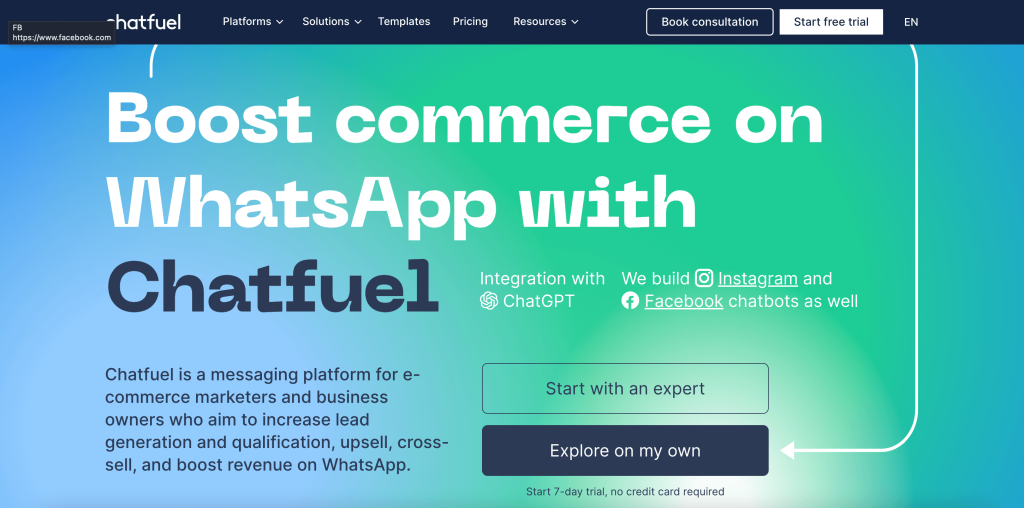
Chatfuel is an intuitive chatbot builder specifically designed for Facebook Messenger and Instagram, but it can also be embedded on websites. It is an alternative to ManyChat, providing a large collection of pre-made templates that cater to both general purposes and industry-specific needs, such as Shopify-integrated cart abandonment and automatic appointment booking with Calendly.
Setting up a Chatfuel bot is simple and quick. Once connected to your Facebook account and linked to your preferred page, you only need to create automated responses to common user keywords.
Chatfuel offers both simple text responses and custom automated flows. For designing your bot, it features a user-friendly drag-and-drop editor, where each element represents an action your bot can perform, such as sending a message, creating a menu, or showing a typing animation, followed by a user response. You can even annotate each element to justify your design choices.
ManyChat – best price point
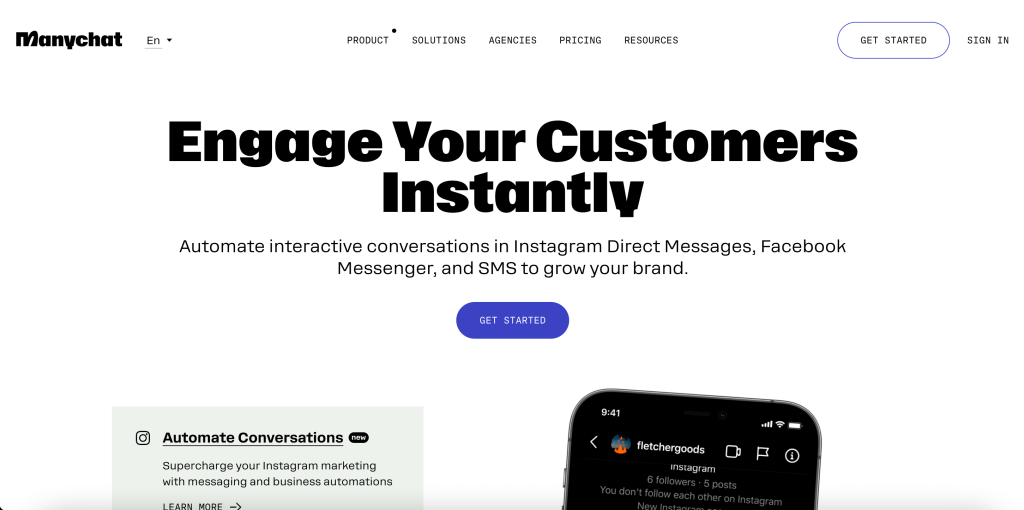
ManyChat is a user-friendly chatbot builder favored for its sleek drag-and-drop editor, affordable paid plan, and compatibility with common channels like Facebook Messenger, Instagram, email, and SMS. It provides over 25 templates, and while its website widget redirects users to Messenger rather than offering a built-in chat box, its design interface makes it easy to customize, understand, and adjust the flow of your bot.
More importantly, ManyChat can be used for automating your Instagram profile too which is quite a unique feature that most other chatbot platforms offer.
The free plan offers features such as audience segmentation, growth tools, unlimited chatbot flows, and supports up to 1,000 contacts, making it one of the best free options. If you desire more channels, better analytics, additional integrations, and the removal of the ManyChat branding, the Pro version is available at $15/month, though the price increases with the number of contacts you have.
Tidio – for unlimited chatbots
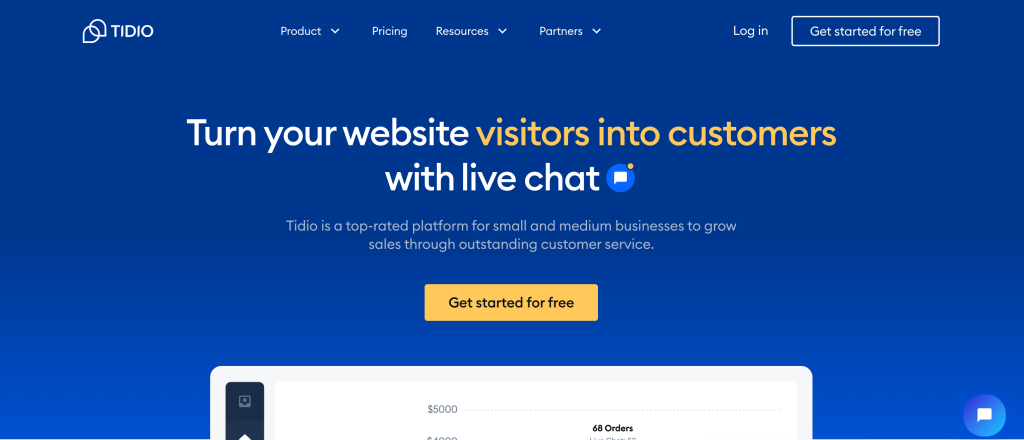
Tidio is a versatile chatbot platform that works across various channels like websites, email, Facebook Messenger, and Instagram. It can be integrated with a range of platforms, such as Shopify, WordPress, Wix, HubSpot, Zendesk, Mailchimp, and more, plus there’s a JavaScript API for custom integrations.
Its user-friendly drag-and-drop editor enables easy chatbot creation using nodes, which guide customer interactions with preset responses. The platform provides over 42 templates to start with, including ones for abandoned carts and customer satisfaction surveys.
While Tidio is somewhat more expensive than competitors like ManyChat and Chatfuel, its $50/month Chatbots plan offers unlimited chatbots for an unlimited number of unique visitors. Moreover, it provides a more comprehensive chat box on your website.
Tars – for automated flows
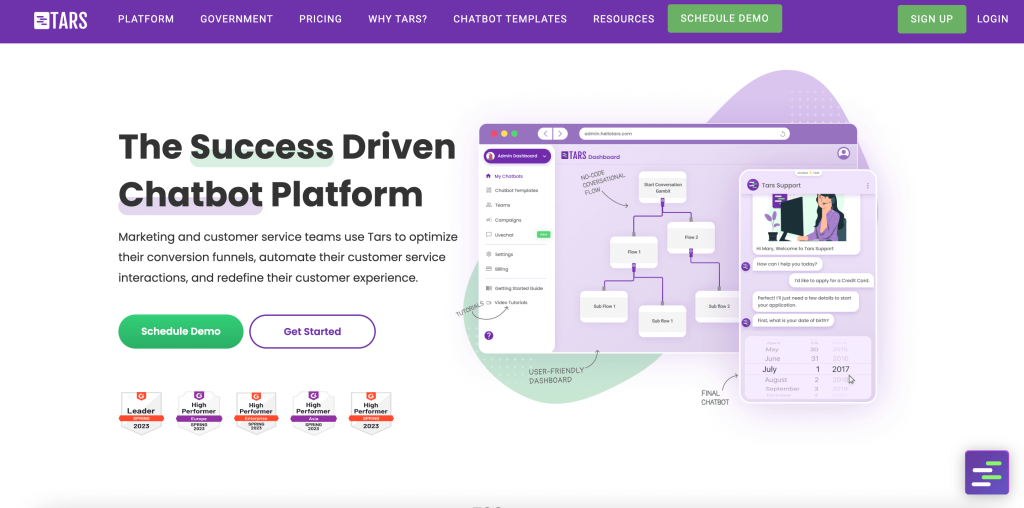
TARS is an ideal chatbot builder for large businesses aiming to automate their website conversations without human intervention. It enhances the marketing team’s workflow and improves conversion funnels by automating the process of greeting prospects and generating leads.
TARS can also be integrated into your landing pages to dispense necessary information without overwhelming visitors, facilitating the collection of user contact details and relationship building.
Tips and Best Practices for Implementing Chatbots
When implementing chatbots, it is important to keep in mind a few tips and best practices to ensure that they are effective and useful for both customers and businesses. Here are some of the best practices for implementing chatbots in 2023:
Define the Customer Service Strategy
Before implementing a chatbot, it is important to define the customer service strategy. This includes identifying the customer pain points, understanding the customer journey, and defining the chatbot’s role in the customer service process. The chatbot should be designed to provide quick and accurate responses to common customer queries and issues.
Choose the Right No-Code Chatbot Builder
Choosing the right no-code chatbot builder is crucial for the success of the chatbot. There are several no-code chatbot builders available in the market, each with their own strengths and weaknesses. It is important to choose a builder that fits the business’s needs and requirements. Some of the popular no-code chatbot builders include Landbot, Joonbot, and Power Virtual Agents.
Avoid Pitfalls
While chatbots can be highly effective, there are certain pitfalls that businesses should avoid. One of the common pitfalls is designing a chatbot that is too complex or difficult to use. Customers should be able to interact with the chatbot easily and get quick and accurate responses. Another pitfall is failing to provide a human touch. While chatbots are designed to automate customer service, they should still be able to provide a personalized and human-like experience.
Monitor and Evaluate Performance
Once the chatbot is implemented, it is important to monitor and evaluate its performance regularly. This includes tracking the number of interactions, response time, and customer feedback. The chatbot should be optimized based on performance metrics to ensure that it is meeting the business’s goals and objectives.
In conclusion, implementing a chatbot can be highly beneficial for businesses, but it is important to follow the best practices and avoid pitfalls to ensure that it is effective and useful for both customers and businesses.
The Future of No-Code Chatbot Builders
As the chatbot market continues to grow, no-code platforms are becoming an increasingly popular choice for businesses looking to create their own chatbots. These platforms allow non-technical developers to create chatbots without having to write any code, making the process quicker, easier, and more accessible.
One emerging trend in the world of no-code chatbot builders is the use of artificial intelligence (AI). AI-powered chatbots can understand natural language better than traditional chatbots, allowing them to provide more accurate and helpful responses to users. Many no-code platforms now offer AI features, allowing businesses to create more advanced chatbots that can handle complex queries and provide a more personalized experience for users.
Another trend is the integration of chatbots with other tools and platforms, such as social media, messaging apps, and CRM systems. No-code chatbot builders are making it easier than ever to integrate chatbots with these tools, allowing businesses to create a seamless experience for their customers across multiple channels.
As the chatbot market continues to grow, the demand for no-code platforms is likely to increase. These platforms offer a cost-effective and efficient way for businesses to create chatbots without having to hire a team of developers. With the rise of AI and the integration of chatbots with other tools and platforms, the future of no-code chatbot builders looks bright.
Overall, no-code chatbot builders are an exciting development in the world of chatbots, offering businesses of all sizes the opportunity to create their own chatbots quickly and easily. As the market continues to grow, we can expect to see more innovative features and integrations being added to these platforms, making it easier than ever for businesses to create chatbots that provide a seamless and personalized experience for their customers.
Automate customer servicing with chatbots
No-code chatbot builders are a game-changer for businesses looking to create chatbots without the need for extensive coding knowledge. They offer a user-friendly interface that allows anyone to create a chatbot in a matter of minutes. With the rise of AI and automation, chatbots have become an essential tool for businesses to improve customer service, automate repetitive tasks, and gather valuable data.
When choosing a no-code chatbot builder, it’s essential to consider factors such as pricing, features, integrations, and customer support. Some platforms offer free plans with limited features, while others require a monthly subscription. It’s also important to choose a platform that integrates with your existing tools and provides reliable customer support.
Overall, no-code chatbot builders are an excellent option for businesses looking to create chatbots quickly and easily. With the right platform, businesses can improve customer service, automate tasks, and gather valuable insights. Whether you’re a small business owner or a large corporation, no-code chatbot builders offer a cost-effective solution to improve your business operations.
It is important to note that the information provided in these sources is accurate at the time of writing. However, as the chatbot builder market is constantly evolving, it is recommended that businesses do their own research before selecting a chatbot builder for their needs.
Frequently Asked Questions
What are the top no-code chatbot builders available in 2023?
There are several no-code chatbot builders available in 2023. Some of the top ones include Tidio, HubSpot Chatbot Builder, Intercom, Drift, Botsonic, Chatbase, and Chatfuel. Each of these builders has its own unique features and benefits.
What features should I look for in a no-code chatbot builder?
When looking for a no-code chatbot builder, there are several features you should consider. These include ease of use, customization options, integrations with other platforms, analytics, and AI capabilities. It’s also important to consider the pricing and whether the builder offers a free trial or a money-back guarantee.
Which no-code chatbot builders offer the best AI capabilities?
Several no-code chatbot builders offer AI capabilities, including Botsonic, Chatbase, Ingest AI, and Yuma AI. These builders use machine learning and natural language processing to create intelligent chatbots that can understand and respond to user queries.
Are there any free no-code chatbot builders worth using?
Yes, there are several free no-code chatbot builders worth using, including Tidio and Chatfuel. These builders offer basic chatbot functionality and can be a good option for small businesses or those just starting with chatbots.
What are the advantages of using a no-code chatbot builder over coding one?
Using a no-code chatbot builder offers several advantages over coding one from scratch. Firstly, it’s much faster and easier to create a chatbot using a builder, as you don’t need any coding skills. Builders also typically offer pre-built templates and integrations, which can save time and effort. Additionally, using a builder can be more cost-effective than hiring a developer.
Can a no-code chatbot builder be integrated to a website?
Yes, most no-code chatbot builders can be easily integrated into a website. Builders like Tidio and HubSpot Chatbot Builder offer integrations with popular website platforms like WordPress and Shopify. This allows businesses to seamlessly add chatbots to their website and improve their customer service and engagement.
